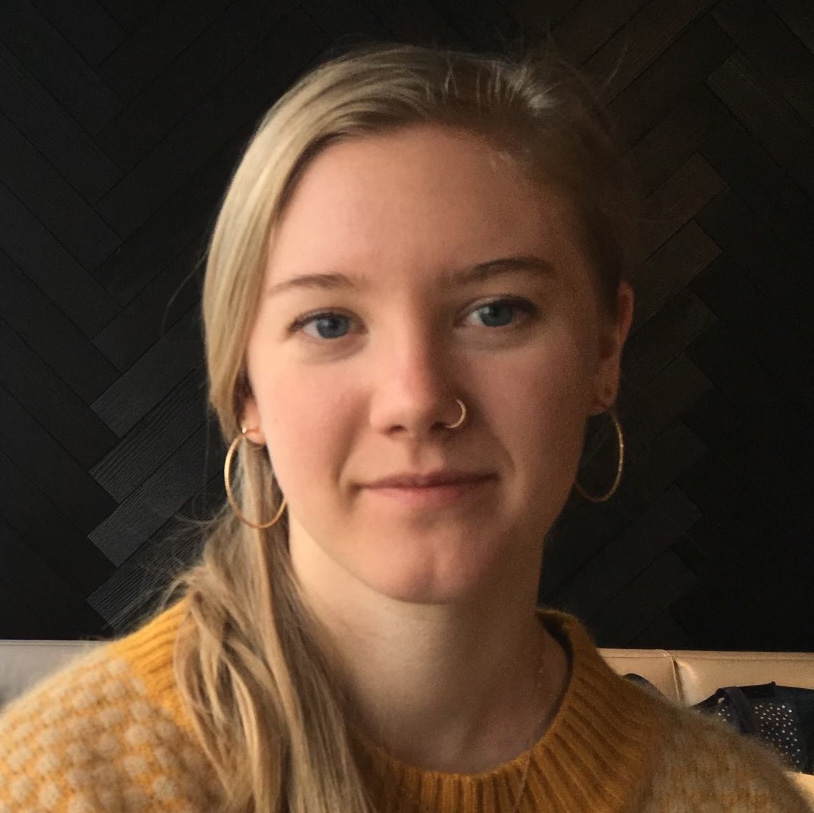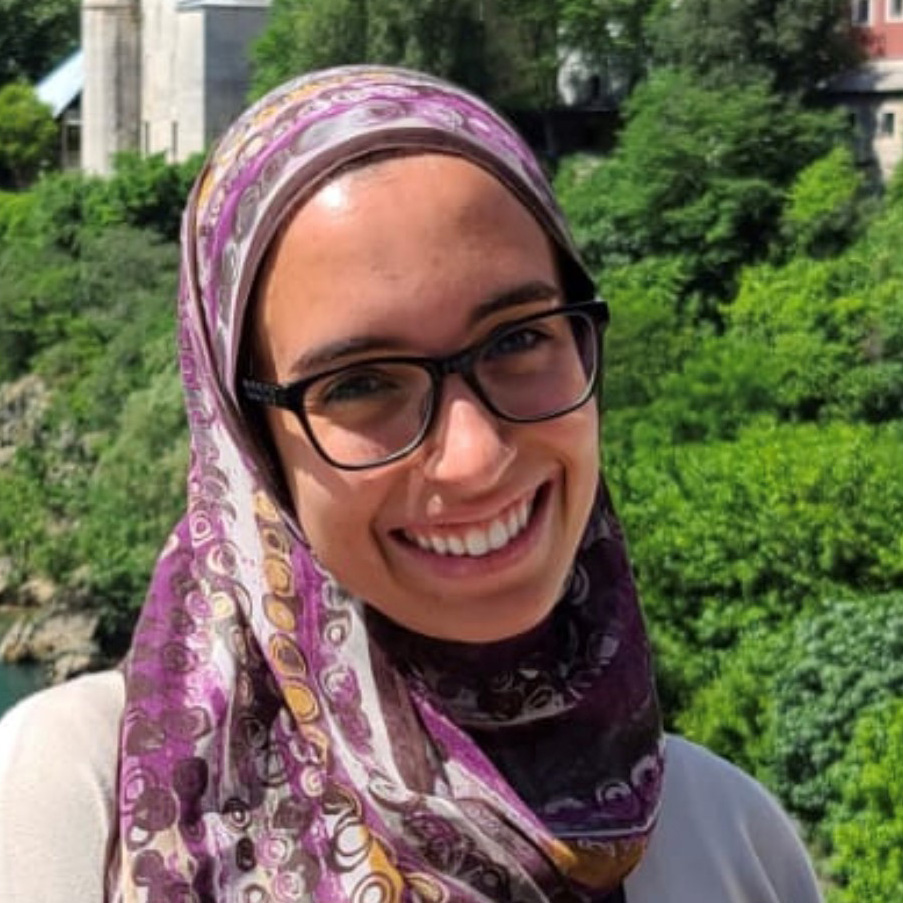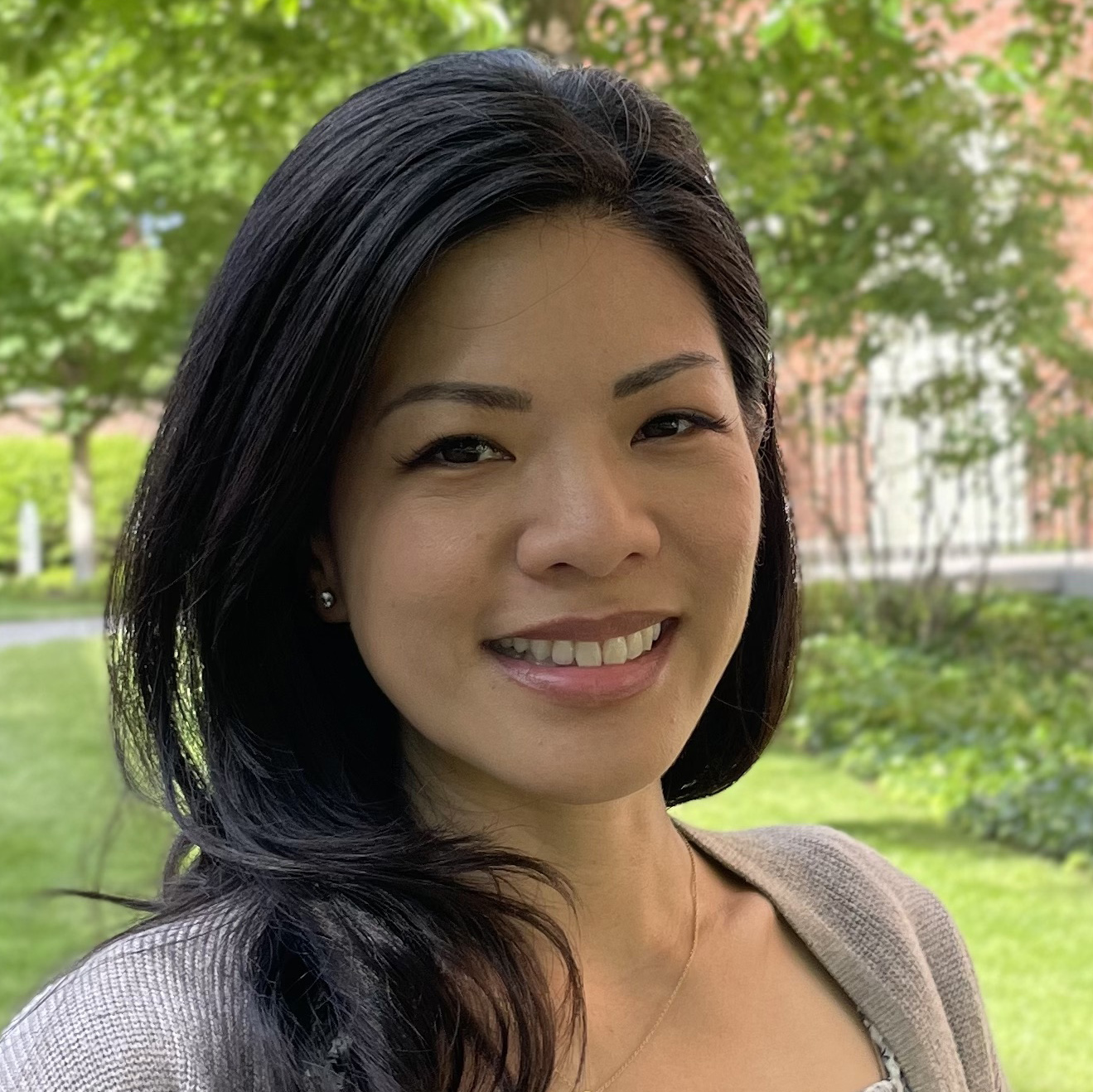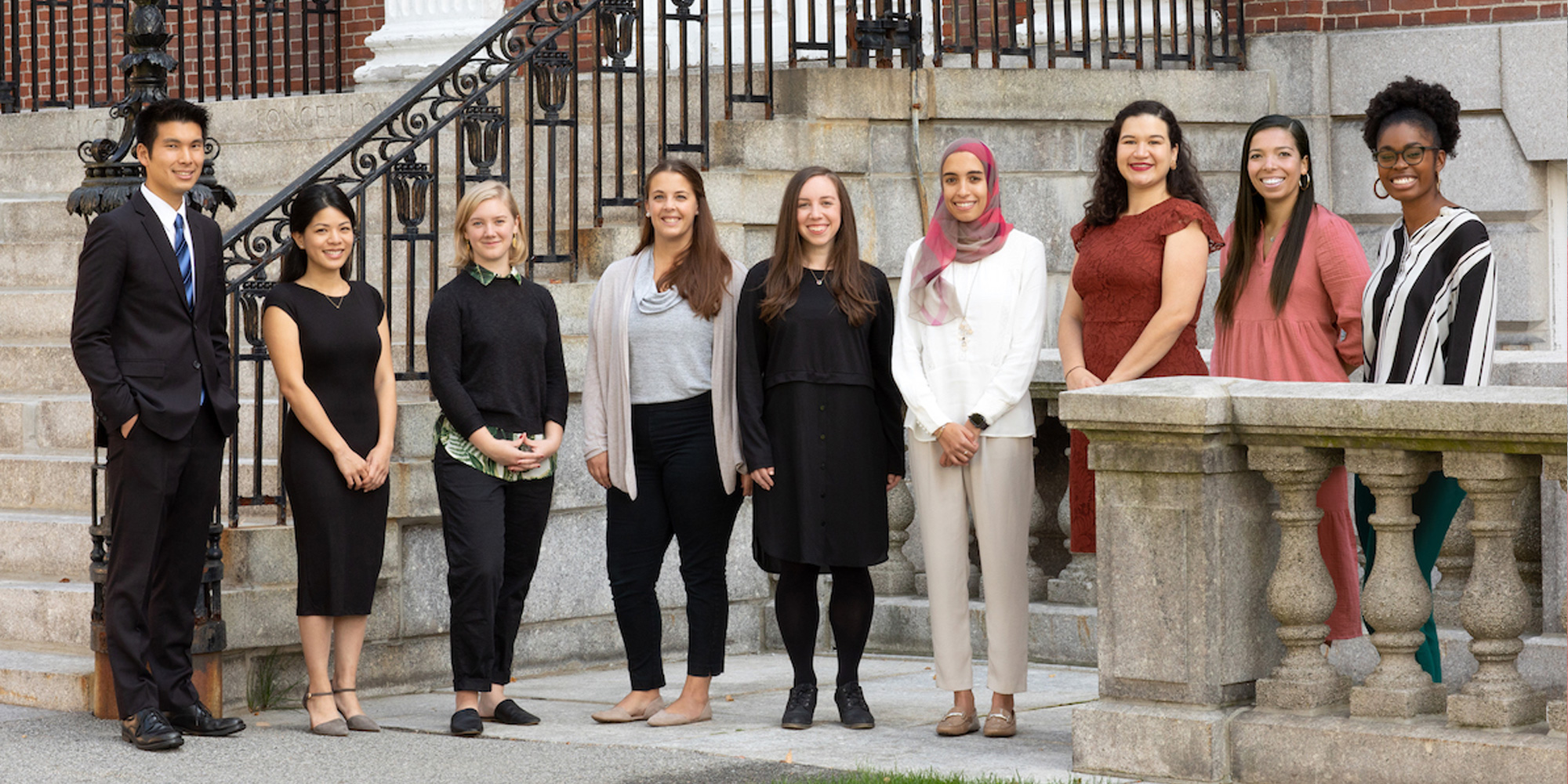The Zaentz Early Education Initiative at the Harvard Graduate School of Education (HGSE) emphasizes research that drives policy and practice, as well as collective action that sparks systemic change. Since 2016, 43 fellows have taken part in the initiative, going on to leadership roles throughout the country while remaining in touch with the burgeoning Zaentz community.
I spoke to three of the nine most recent fellows about their experience and their plans.
👉 Read more: How Two Zaentz Fellows Are Adapting to—and Shaping—the Early Education Landscape
The “Gifts” of Early Learning

Charlotte Petty majored in art history at Bard College and continues to make ceramics and to look for ways to incorporate creative expression into early education. She mentions Friedrich Wilhelm Fröbel (1782–1852), whose “gifts” (including colored paper, mosaic tiles and sewing) are tied to the origins of kindergarten and the thinking of Maria Montessori. “I’ve always been fascinated by the way humans interact with materials,” she says. “Toddlers are like little action painters. They don’t care about the final product. They’re just in the moment—sensorially and viscerally.”
👉 Read more about Fröbel’s “Gifts”
Having attended Vermont’s Mountain School during her senior year of high school, Petty never lost the connection between nature and learning. Inspired by the Boston Outdoor Preschool Network, she ran a pandemic pod school for four-year-olds that spent the entire year outdoors.
Working in collaboration with Cambridge Public Schools’ Birth to 3rd Grade Partnership, Petty is helping to conduct an expansive survey focusing on the experience of early educators working in the City of Cambridge, MA. “Educator voice,” she says, “is essential for implementing universal pre-K in a way that works for the people who will be carrying out the work.”
Looking back at her Zaentz fellowship, Petty is appreciative of the culture as well as the curriculum. “The faculty treats us like experts,” she says, noting that Zaentz postdoctoral researcher Dr. Emily Hanno expanded her understanding of early childhood development and policy. “And I’ve learned from previous cohorts that there are so many ways of working in this field.”
A Haven at the Heart of Despair

Amina Elgamal’s early education journey began in Egypt with a series of volunteer opportunities. “Working with slum communities, she says, “I was shocked that children had no proper schooling because they were working alongside their parents instead.”
She persisted, establishing a Montessori kindergarten called Net3allem, which means “to learn collectively” in English. “We wanted the kindergarten to be both an educational and economic center to the community where mothers can work and children can learn,” she says. It became more than that; it’s “a haven at the heart of despair.”
As the only international fellow this year, Elgamal says she “brought a different perspective in terms of culture and experience. Growing up in a developing country and learning about early education systems in low-income communities allowed me to contribute with insights as to how to navigate challenges that stem from contextual differences.” Along the way, she gained insight into evidence-based practices in the United States and how professionals here handle systems and challenges effectively.
Earlier in her career, Elgamal worked in the fields of corporate social responsibility, corporate communication and brand management, so it makes sense that part of her Zaentz fellowship involved developing a marketing plan for the Certificate in Early Education Leadership program, which serves early education directors, state leaders, program administrators, instructional coaches, school principals and nonprofit leaders.
“Overall,” Elgamal says, “I gained a lot of knowledge from mentors, experts and colleagues, and built a community that will last beyond HGSE.”
Cross-Pollinating for Diversity

Jenna Nguyen came to Zaentz from the education division of SRI International, a research institute in Menlo Park, CA. She previously worked as a behavioral therapist for children with autism. “The training I received wasn’t always up on best practices in the field,” she admits. Since that time, she has learned more about neurodiversity and evidence-based intervention rooted in family engagement. “Early intervention doesn’t happen during a visit,” she says. “It happens between sessions.”
Relationships among fellows have been the cornerstone of Nguyen’s Zaentz experience. “We innovate, collaborate and troubleshoot together. It makes for a strong tribe.”
Nguyen’s internship with Strategies for Children continues through this summer. She’s been working with Salem Public Schools on applying for a grant from Commonwealth Preschool Partnership Initiative to expand early education. One of her favorite parts of the job is the daily 9:30 call, a Zoom forum for the state’s early learning community—teachers, family, funders, legislators and more. The cross-pollination on the 9:30 calls brings to mind the collaborative spirit of the Zaentz Fellowship.
👉 Read more: A Strategies for Children intern on preschool expansion and local partnerships
Asked where she’ll go after her internship, Nguyen responds, “Wherever I can have the most influence.”

Mark Swartz
Mark Swartz writes about efforts to improve early care and education as well as developments in the U.S. care economy. He lives in Maryland.



